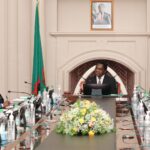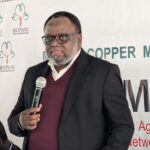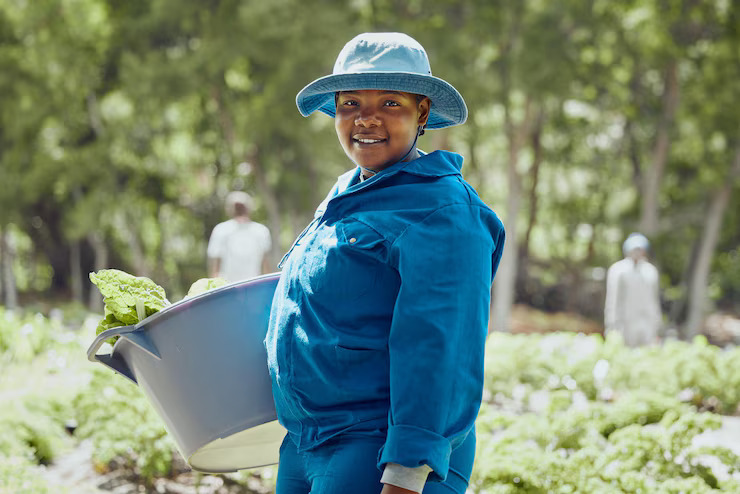Zambia is making significant strides in improving conditions for refugees and their host communities through its progressive refugee policy, following commitments made at the Global Refugee Forum in 2023. This policy marks a turning point in how refugees are supported to build sustainable livelihoods and integrate meaningfully within Zambian society.
Mwaka Sangwa, 63, embodies the spirit of resilience that defines many refugees in Zambia. Having arrived at Meheba refugee settlement in North-Western Zambia in 1993 after fleeing conflict in the Democratic Republic of Congo (DRC), she never imagined that the settlement would become her lifelong home. Despite the loss of her husband and son to the conflict, Mwaka held onto hope. Over the years, she and her family have planted roots, building a thriving farm that now spans 10 hectares.
“When I first arrived, I was young and energetic,” Mwaka recalls. “We were told to farm if we wanted to eat.” The Zambian government provided her with land and training in irrigation, crop selection, and pest control. Starting with soybeans and maize, Mwaka expanded her farm and now employs both refugees and local Zambians. “Farming is our livelihood,” she says. “We sell soya to buy clothes, food, and pay for our children’s education. Maize is mainly for food and paying those who help us.”
Zambia currently hosts over 110,000 refugees, asylum seekers, and former refugees, primarily from the DRC, Burundi, Angola, and Rwanda. Many reside in agricultural settlements like Meheba, which have evolved into centers of self-reliance and local integration — a direct result of Zambia’s efforts to expand refugee opportunities and inclusion.
Building on pledges made at the 2023 Global Refugee Forum, Zambia launched its first national refugee policy in 2024. The policy aims to foster refugee self-reliance while improving socio-economic conditions for host communities. A key aspect is integrating refugees into national service planning—ensuring that health, education, and agricultural resources also benefit displaced populations.
At a time when global humanitarian funding faces severe cuts, Zambia’s inclusive approach focuses on helping refugees break free from aid dependency and become active contributors to the economy. This strategy benefits both refugees and the local communities that welcome them.
Meheba settlement, spanning 684 square kilometers in Kalumbila mining district, has been a sanctuary since 1971. Musole Mufwinda, an Angolan former refugee born in Meheba, grows cabbages, okra, and sweet potatoes that he sells locally. “My parents taught me farming was the key to a better life,” he says. “Selling crops allowed me to buy a motorbike, which now supports my family.”
To further support refugee livelihoods and host communities, UNHCR and the Zambian government are collaborating to improve access to sustainable energy across refugee settlements. Partnerships with organizations like Caritas help establish value-addition centers operated by cooperatives of refugees and locals. These centers provide storage, processing, packaging, and refrigeration services that boost productivity and market access.
Priscilla, a Community Relations Officer at Golden Camp Solutions—catering for Lumwana copper mine employees—confirms, “We buy about a ton of cabbage and 500 kilograms of tomatoes weekly from refugee farmers. They are treated the same as any other supplier.”
Musole regularly transports his harvest to a solar-powered cold storage unit before selling at local markets, demonstrating how integrated refugee farming supports local economies and food systems.
“Zambia continues to lead by example,” says Preeta Law, UNHCR’s representative in Zambia. “Including refugees from the start benefits everyone—families regain dignity, markets thrive, and food systems strengthen. In times of global funding cuts, Zambia’s inclusive model shows that these policies are both morally right and economically smart.”
As dusk settles over her farm, Mwaka Sangwa carries a hoe home with a joyful heart. “I feel very happy because I can support my family,” she reflects, embodying the hope and progress that Zambia’s refugee policy is cultivating.
Zambia’s approach offers a powerful example of how welcoming refugees and investing in their potential can create sustainable livelihoods and bolster national development. With ongoing commitment, this model promises a brighter future for refugees and host communities alike.






